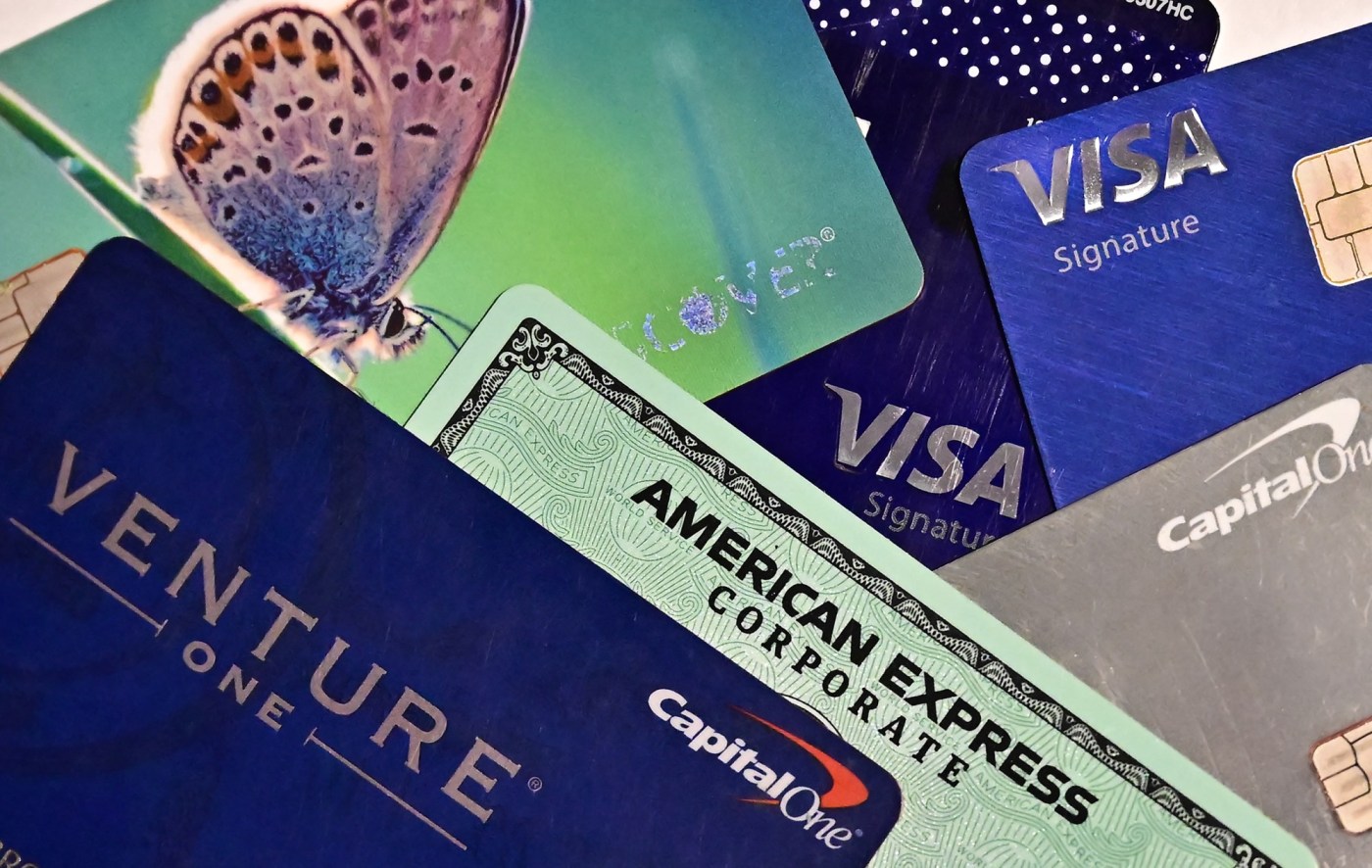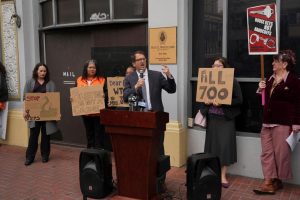Inflation may be slowing, but high prices continue to dash all hopes of saving money for Californians living paycheck to paycheck.
Just this month, a new California law banning so-called “junk fees” took effect. Designed to shield consumers from undisclosed costs on purchases, it’s supposed to prevent businesses from hiding extra fees, often until the end of transactions. Unfortunately, California’s new law isn’t enough and won’t protect consumers from all the fees they endure.
Nor will similar federal protections enacted last fall. They’re leaving out one core culprit: credit card companies.
Federal junk fee regulations so far have focused on concert ticketing, housing and airline fees. Excluding credit card companies when consumers are drowning in credit card debt — due in large part to bank fees — is a massive oversight. Millions of people nationwide are borrowing money to pay for planned and unplanned expenses, but not realizing how much fees are adding to the true cost of what they’re paying for, until it’s too late.
Many Californians turn to traditional banking and financial solutions like credit cards to borrow money, but those businesses don’t always have their best interest in mind. A lot of these lending products come with hidden fees and an annual percentage rate that can be misleading for consumers and doesn’t truly reveal the costs. This goes way beyond late fees, which is why it’s surprising that the entire issue is not being addressed. The junk fee rules will not solve the overlying problem.
The amount of junk fees incurred when consumers borrow money is staggering. The 2023 Cash Poor Report found that Americans pay more than $25 billion annually in hidden fees. Meanwhile, unplanned expenses cost the average family living paycheck to paycheck nearly $2,000 a year. These are unavoidable, and financial companies shouldn’t be allowed to take advantage of consumers in need. But still they do.
The report found that subprime credit cards for consumers with low credit scores are by far the worst for charging borrowers additional junk fees, costing consumers $11.5 billion a year in fees, including annual percentage rates, subscription fees, late fees, fast payment processing fees, application fees, monthly maintenance fees, new card fees and ATM fees.
Payday loans are the second-most costly option, totaling roughly $6 billion in additional fees. And cash advances through financial tech firms, such as earned wage access and peer-to-peer lending, offer cheaper solutions amounting to $1.3 billion in total annual fees.
It’s clear that junk fees in the traditional financial system have taken advantage of many Californians. The usual industrywide standard for comparing financial options should not be the annual percentage rate, since that isn’t the total cost consumers incur when they borrow money. Borrowers face additional charges outside of the annual rate, causing even more confusion for individuals already in a financial pinch.
Regulators in California and Washington, D.C., need to go further than what they’re doing and address this inaccurate calculation by adopting a different approach, what we call a “total cost rate.” It isn’t meant to trick consumers, like the annual percentage rate; instead it includes everything that a consumer pays in addition to the principal borrowed. The total cost rate is the necessary assessment of what borrowing costs really are when they include all additional fees in addition to the principal and not limited to the annual percentage rate.
Related Articles
Federal, state lawsuits stack up against Patelco following cyber attack, seeking billions
Zelle, bank scams cost customers millions each year. This senator wants reimbursements
Patelco online banking finally restored two weeks after security breach
Patelco Credit Union says network ‘stabilized’ after crippling cyberattack
Patelco makes minor restorations but no end near for crippling credit union cyber attack
As consumers become more aware of junk fees and the true total cost to borrow, they are more likely to take action and make better informed decisions.
However, it’s up to local California leaders, President Joe Biden, Congress and oversight agencies to make finance fairer by turning to systems that are not only cheaper, but more convenient and accessible.
Implementing total cost rates and including credit card companies in junk fee regulations could help usher in an era of transparent pricing that makes life easier for Californians.
Rodney Williams is co-founder and president of SoLo Funds, a community lending platform based in Los Angeles. He wrote this column for CalMatters.












